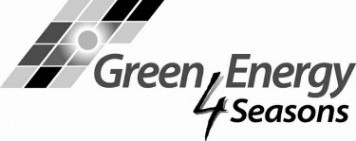Several studies have shown the need for harmonisation of the various national legal regimes relating to the tort of unfair trade practices and its application requirements in EU member states. This article addresses how to tackle a parasitic copy of a creation in Belgium.
Generally, any party is free to copy or imitate another party's creation. However, the freedom to copy principle has two exceptions:
- Copying is not permitted if it constitutes infringement of IP rights.
- Copying is not permitted if it is considered to be contrary to honest and fair trade practices. To determine whether a practice is considered unfair, reference must be made to the Code of Economic Law (BEC), which prohibits unfair practices in business-to-consumer and business-to-business relations by establishing rules regarding:
- unfair contract terms;
- misleading or aggressive market practices; and
- abuse of economic dependence.
While the BEC establishes numerous acts which are considered unfair, the law is vague regarding which types of unfair act are covered by the concept of parasitic copies.
Case law – particularly the Court of Cassation's 29 May 2009 decision (Marquet v Orac (C060139N)) – gives only little guidance as to how to prohibit such acts of unfair competition and dishonest practices in industrial and commercial matters:
A seller who, without making a creative effort himself, directly benefits from the significant efforts or investments dedicated to the creation of economic value of another seller, does not yet commit an act contrary to fair trade practices. The judge, however, can based on obtaining an advantage for another reason than the mere copying, rule that such practice is unfair. These other reasons does not only consist of the denying an intellectual property right or of confusing advertising but can consist of any form of illegitimate behavior.
An interesting case in this regard is the Marche-en-Famenne Commercial Court's 13 December 2012 decision, in which Green Energy for Life – a company that was active in the field of solar panels but had no required qualifications – was found to have committed an act of unfair competition because it had copied the company name, purchase orders, promotional materials, advertising slogans and pre-contractual documents from its competitor, Green Energy 4 Seasons.
Green Energy 4 Seasons owned two earlier EU trademark registrations for the word mark GREEN ENERGY 4 SEASONS and a figurative mark (Figure 1), which covered goods and services in Classes 9, 11 and 37.

Figure 1: Green Energy 4 Seasons figurative mark
Green Energy 4 Seasons' claim that Green Energy for Life had acted contrary to fair business practices was successful. The court ordered Green Energy for Life to stop using the name as its company name, trade name and even its domain name.(1)
The court condemned parasitism but stated that some acts of copying in this case (eg, copying the general terms and conditions) were lawful. However, as former employees of Green Energy 4 Seasons, the founders of Green Energy for Life had had access to privileged information which they had used in their new commercial activities. Therefore, the court found that copying the purchase orders, the promotional materials and the web pages – which were the result of creative and expensive effort – were acts of parasitic competition.
In this case, the court applied the principle that a copy can be prohibited if it creates a risk of confusion in the mind of the public.
Endnotes
(1) Marche-en-Famenne Commercial Court, 13 December 2012 (A/12/00246).



